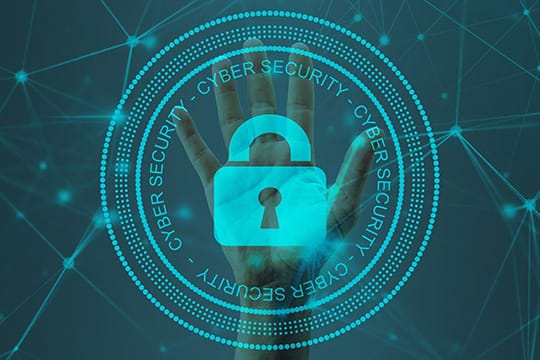For decades, small businesses were unlikely targets for hacking attacks and data breaches by hackers. Hackers were less interested in attacking low-profile small businesses and relatively unknown brands with fewer financial resources. And this is why, whenever you think about sophisticated cyberattacks on companies, the first thing that comes to your mind is the large-scale breaches against huge corporations like Facebook, Google, Yahoo, Equifax, and T-Mobile. Massive breaches make headlines, but when they happen against small businesses, it rarely makes the news.
Furthermore, many small business owners don’t feel at risk from cyberattacks and believe that they are too small to be attacked. As such, they don’t take proper security precautions to protect their businesses from online criminals, scammers, and hackers. However, a recent survey by The Manifest found that 15 percent of small businesses experienced either a data breach, hack, or virus in 2019.
Why Hackers Targeting Small Businesses?

This proves that small to medium-sized businesses are indeed vulnerable and can be victims of targeted attacks. The truth is, cybersecurity threats are all around us. That said, here are three reasons why hackers are increasingly targeting more small businesses:
1. Lack of Strict Security Protocols and Regulations

The National Cyber Security Alliance reports that 83 percent of American small businesses lack strict security protocols and 69 percent have no cybersecurity plan at all. Most of these businesses rely on their employee’s limited knowledge and expertise in cybersecurity to secure and protect their data. This makes them an easy target for hackers and scam artists.
The reality is that many small business owners don’t consider themselves a target and quickly adopt an “it won’t happen to me” mentality. In some cases, business owners remain blissfully ignorant over the lack of internet security in their establishment. It’s this very thought process that puts small businesses at risk. A business doesn’t need to have a lot of money—or even positive cash flow—to be a target.
2. Small Businesses Have Sensitive Data

As previously mentioned, small businesses often assume that hackers are only interested in huge corporations and organizations with a lot of customer data and information. And since they only have a few employee or financial records, they believe can’t attract unwanted attention from cybercriminals. The truth is that hackers understand the true value of data and information, and it doesn’t really take much for a business to get their attention.
In fact, 43 percent of all cyberattacks reported in 2019 were targeted at small businesses, according to Verizon’s Data Breach Investigation Report. With nearly half of all targeted businesses being small businesses, it’s important to note that this is a sharp increase compared to several years ago. In 2019 alone, there was a 424% increase in new cybersecurity small business breaches.

Believe it or not, health organizations and other data-rich companies aren’t the only types of businesses on a hacker’s radar. Even small businesses carry more data and information than they think valuable. Hackers target small business records that hold crucial data like credit card numbers and sell this information on the black market. And since it’s a good source of revenue for them, they continue to target these businesses. Like any small business, running a small business means you have to deal with the reality of protecting employee and customer data and managing that data as best as possible.
3. They Lack Resources to Invest in Protective Measures

Many small businesses are at a disadvantage when it comes to protecting their data. Mostly they lack the funds and resources to invest in the security measures enterprise-level businesses have in place. Larger businesses recognize the serious danger that hackers pose. As a result, they dedicate a large number of resources towards protecting their companies. With bigger businesses even more difficult to attack, it leaves small businesses significantly more vulnerable. As a result, they become ripe targets for cyberattacks.
But the truth is, investing in protective measures doesn’t have to be as costly and complex as it seems. For business owners that don’t fully understand the world of IT and security, it’s best to work with a third-party internet security company. Such third parties can get you up and running safely and quickly and provide you and your staff with important security awareness training.
Protective Measures for Small Business Owners

The last thing you want as a small business owner is to lose hundreds of thousands of dollars because of a data breach you could have prevented. Over 60 percent of small businesses go out of business within six months of a cyberattack, according to the National Cyber Security Alliance. Therefore, it’s crucial that you protect your business, regardless of the resources you have. Here are 5 tips to help you keep your assets and data safe.
1. Start by Recognizing that You’re a Target
As mentioned, today’s small businesses have become an ideal target for data breaches. Small business owners should now face the reality and stop the false sense of security they’ve been having for years. All of your data is valuable and needs protection from cyber threats. So, before you start worrying about anything else, recognize that your business is an ideal target and you need to take the necessary protective measure.
Still don’t take digital threats seriously? There are several horror stories about small businesses that suffered from digital hacks. Understanding what happened to them can help put things into perspective. One company, Volunteer Voyagers, became the target of a $14,000 threat. Even though this might seem like a small amount, it’s plenty to a single business owner running a humanitarian non-profit organization. Another small business in Kentucky fell victim to a ransomware attack and paid out a $150,000 ransom in Bitcoin to retrieve their data (though the hacker’s initial request was $400,000).
2. Put the Appropriate Protections in Place
All it takes for a hacker to strike and compromise your systems is one successful effort. And it’s a matter of “when,” not “if.” You need to establish a system for dealing with any possible consequences of a cyberattack, in case it ever happens to your business. Some of the measures you need to implement include:
- Updating all your browsers and systems whenever new updates come out.
- Implementing a password policy.
- Implementing a security monitoring policy.
- Have a system for thorough identity verification for any users.
- Creating an incident response plan.
- Installing anti-virus software on all your computers (and keep it updated).
- Conducting regular penetration testing.

3. Properly Train Your Employees
In a recent conversion with Stephen Ritter, the CTO of Mitek Systems, he explained to us how employee training is important to make your business cyber-safe. As he mentioned, “For a business with limited financial resources, employees can help ensure cyber safety and prevent avoidable security incidents if they’re armed with proper tools and education. Keep in mind that your business’s security measures are as effective as how smart your entire team is.”
In fact, employees have been reported to be the number one cause of data breaches in small businesses. Provide your team with ongoing training on cybersecurity best practices and cyber safety.
You should also convey the risk potential. As business owners, employees are also likely to adopt the “it won’t happen to us” mentality. Remind them that it’s not just your business that could be in trouble if you faced a hack, but that their own personal data and their jobs are at risk if a hack takes place. Roughly 60 percent of small businesses who are targeted in online attacks go out of business within six months. Being transparent about the risks allows your team to be more committed and personally invested in the health security of your organization.
4. Back-Up Critical Data
It’s not uncommon for businesses to lose crucial data after a malware attack or hackers to gain access and encrypt a computer effectively blocking the user from retrieving any of their files unless they pay thousands of dollars. And this happens to small businesses more than you think. As a small business owner, it’s important that you regularly backup your data by storing it in a secure cloud. This will ensure you have access to your data, even after a cyber breach, and helps you instill a preventative approach.
It’s one thing to face a compromised system, but to lose all your data can severely cripple or kill your business entirely. Write a list of the worst-case scenarios and how your business can address each of them. This helps ensure that your solutions align with potential threats.

5. Implement Systems that are Easy and Ongoing
A few small businesses are ready to manage cyber threats and hackers targets by themselves. But, a majority find it challenging to implement the necessary cybersecurity measures in-house. These businesses resort to hiring professionals to regularly audit their systems and conduct training on an ongoing basis. If you’re overwhelmed by the demands of your business, consider this option. This will give your in-house IT team to have more time to create new solutions for your business. You’ll also have the peace of mind that your customers’ data is protected from targeted attacks as well.




